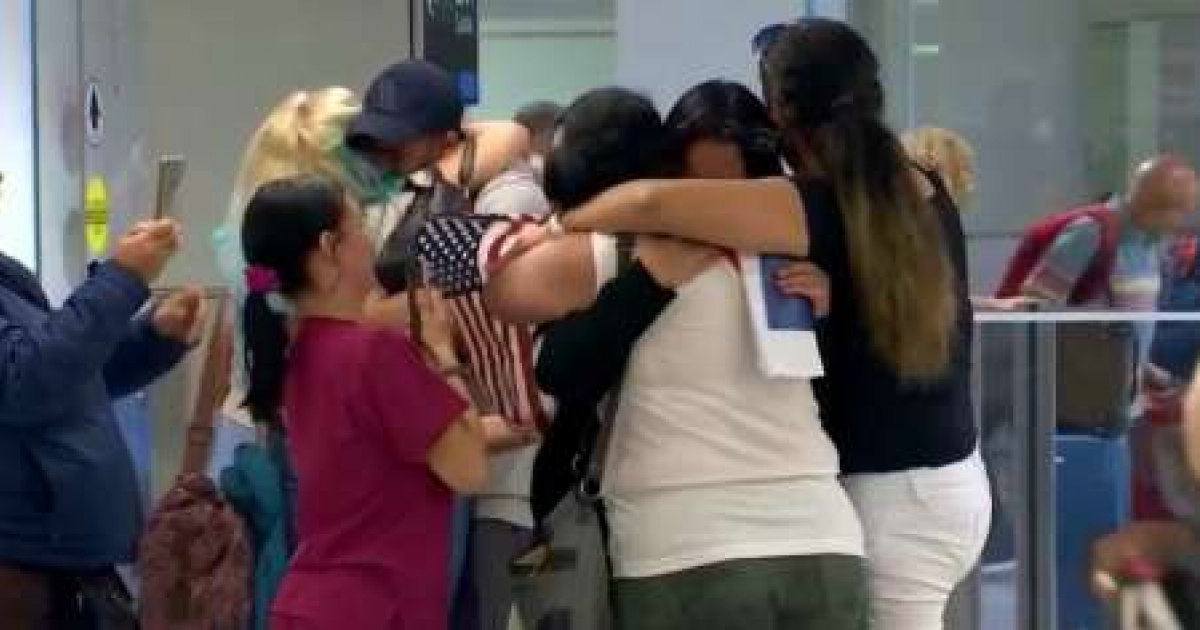
The legal process followed in a Texas court regarding the lawsuit against humanitarian parole does not imply immediate changes on the program, which continues running without alterations nor dangers of being suspended in the short term, according to the most recent documents issued by the judge in charge of the case.
The confusion was generated this Tuesday by imprecise reports about an alleged order from the federal judge Drew B. Tipton denying the petition of the 20 plaintiff states, including Florida, to freeze the progress of the humanitarian parole.
But nothing changed for the moment.
The judicial moves have so far been reduced to legal technicalities and there is nothing that should set off alarm bells for applicants and beneficiaries of the program from Cuba, Nicaragua, Venezuela and Haiti.
The order of two pages issued by Tipton this Monday, February 27, aimed to postpone any decision on the emergency motion filed by plaintiffs, and set the request for evidence by both parties for next Friday, March 3. March 10 was established as the deadline to submit the request.
“The judge has not made any decision and the process may still take longer in court,” he told CyberCuba immigration attorney Willy Allen. “People who are in the application phase or waiting to receive sponsorship approval should not worry at the moment, because any ruling will surely be appealed by one of the parties.”
The government has not responded to the emergency motion, according to the judge, who seeks to expeditiously resolve the lawsuit through a trial.
In any case, the judge has two decisions on the table that he can rule on in the coming days:
- Issue a ruling on the government's motion to change jurisdiction of the case to a federal court in Austin, Texas, or Washington, DC.
- Set a trial date to resolve the case, regardless of whether the claim may be litigated in another court.
Basically, in this Monday's order, the judge proposed that the parties reach an agreement to be able to jointly establish dates for the presentation of evidence and motions, and facilitate the determination of a trial calendar for the case.
In his consideration, Tipton proposed consolidating the emergency motion filed by the plaintiffs and integrating it as part of the trial, which he plans to move forward.
A first hearing to hear the arguments of both parties was scheduled for April 25.
“In the event that this court transfers the venue of the case, the established deadlines will be moot,” Tipton wrote.
Given the coordinates of the case, the Immigration attorneys and legal experts recommend not being impatient and continuing the application processing steps as stipulated.
Any judicial decision should not stop applications that are already registered and in the authorization phase by the authorities of the Immigration and Citizenship Service (USCIS).
On the eve of two months since the entry into force of the humanitarian parole program, More than 13 thousand citizens of the four countries favored by the initiative, mostly Cubans, have managed to reach the United States under financial sponsorship.
He program implemented by the Joe Biden administration on January 6 It is proposed to grant up to 30 thousand visas per month to applicants from Cuba, Nicaragua, Venezuela and Haiti, in order to control the irregular arrival of immigrants through the southern border.
According to official statistics, the flow of immigrants of the four benefited nationalities was reduced by 85% during the first month of application of the program.
What do you think?
SEE COMMENTS (2)Filed in: